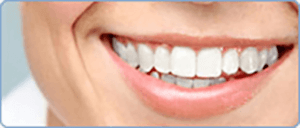 Recently, we have been hearing questions from our patients about alternative means of teeth whitening. I wanted to discuss two of these alternative options specifically: apple cider vinegar and activated charcoal. In general, teeth can stain over time due to the hardships we place on them. Drinking coffee, tea, soda and other harsh foods can take a toll on our pearly white smiles. Staining happens in two ways, which are known as extrinsic staining and intrinsic staining. Simply put, extrinsic staining occurs on the surface of the exposed enamel while intrinsic staining occurs deep down.
Recently, we have been hearing questions from our patients about alternative means of teeth whitening. I wanted to discuss two of these alternative options specifically: apple cider vinegar and activated charcoal. In general, teeth can stain over time due to the hardships we place on them. Drinking coffee, tea, soda and other harsh foods can take a toll on our pearly white smiles. Staining happens in two ways, which are known as extrinsic staining and intrinsic staining. Simply put, extrinsic staining occurs on the surface of the exposed enamel while intrinsic staining occurs deep down.
When we talk about whitening our teeth, we are usually referring to attacking that extrinsic staining. Many products have been created for consumers to try to eliminate staining and most of these products work by the process of abrasion. In other words, products like whitening toothpastes are very abrasive and can actually remove minor amounts of tooth structure when used – but will sometimes also result in whiter teeth. Although there haven’t been many studies on the success of activated charcoal in toothpaste, the mechanism by which it works is similar to the same mechanism used in other abrasive toothpastes. However, in contrast to tooth whitening toothpastes, activated charcoal toothpastes have not been examined or approved by the ADA and too much abrasion can damage your teeth if used as a prolonged alternative to recommended toothpastes.
When considering apple cider vinegar as a mouth rinse and tooth whitening agent, the studies are also absent and its use is strongly discouraged. Vinegar is a common name for its proper name, acetic acid. Just like any other acid, anything acidic should be avoided as a long-term rinse as acidic food and drink will shift the environment in your mouth that may lead to the softening and subsequent erosion of your teeth, which may predispose you to a higher risk for tooth decay. If this is the last thing you do before bed, you are letting your teeth sit in an acidic environment while you sleep. Additionally, if you are brushing your teeth afterwards, the effects can also be damaging as you are gradually brushing your teeth away.
If you are interested in tooth whitening, both in terms of continued use and long-lasting results, custom-fitted whitening trays remain the gold standard. Although whitening gels can cause temporary sensitivity, the mechanism used does not damage your teeth and the results last much longer than other over-the-counter alternatives. Additionally, Cascadia Dentistry offers products than have been shown to reduce or eliminate even the smallest amount of post-whitening sensitivity.
If you’re interested in whitening your teeth, we are here to discuss it further and help you get started!
To schedule an appointment, please call Cascadia Dentistry in Stanwood: (360) 629-7229
